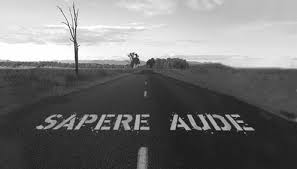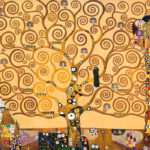- Home
- Counseling and Know-how
- Sapere Aude! A Dialogue on Rel ...

With so many books on religion out there, notably on Christian religion in our part of the world, one can with little difficulty find one that channels with the required precision one’s inevitably personal if not contingent take on religion and the whole realm eventually associated with it. The majority of books are written by enthusiasts of either side—whether fervent adherents to the religion or on the opposite zealous advocates of its faults and detrimental contribution to human health, mental wealth and secular affairs. Deepak Chopra and Richard Dawkins comes to mind as international champions of the opposite fields. In Italy, the situation is possibly less balanced, rather it is biased toward religion given the imposing presence of the Vatican and its direct and indirect influence on habits, tradition (superstition) and media. In this more confined battlefield the voice of reason was recently heralded by, among others, Odifreddi and Giorello, the former with an uncompromisingly disdainful read of the Gospels, the latter with a more erudite and philosophical if rather personal pamphlet on the use of reason to dispel unsustainable superstitions in all its forms. They are counteracted by Mancuso on the theological/intellectual side and an abundance of candy-tasting publications around the official releases of the pope and colleagues.
The book by Degiuli represents an interesting case, a sort of exception in this long-lasting fight in the way it tries to encapsulate a rather strong objection to Christian religion (in the common-sense interpretation of following a scripted set of rules of conducts and adhesion to a pre-packaged set of beliefs, which by the way is not the literal nor original interpretation of the word) within the context of an attempt to understand and politely reject the opposing positions. This structure makes it amenable to a vaster readership than a straighter and tougher construction dedicated to yet another eviction of religion from the ground. The aperture to multiple views is reflected in the presentation of the arguments in the form of a dialogue between three friends (Andrea, Bruno and Carlo)that try to confront their positions and how they can coexist within society. A is agnostic/atheist, B is Spinozian/Einsteinian and C is Catholic. Moreover, the language is plain, clear and moderate everywhere, which further makes the text easy to grasp for all levels of readership, and brings the reader along the crescendo of abstraction and philosophical arguments that triumph at the very end of the dialogue after a pedant start from the readings of the Christian texts. The author admits in the prologue to have resorted to the dialogue form to lighten the text, and it is apparent that the goal was well achieved in this version, though at times and especially in the first chapters the exchange of views and the tone of the friends is even too low level—yet this in hindsight sort of accompanies a progressive rise of tone from simple (literal) to complicated (existential) arguments. As said indeed, the author first concentrates on the comments to the incongruousness and contradiction of the founding texts of Christianity, following in this thread the long history of modernists who object to the official claims of the Church regarding its construction and interpretation. This part sees the Christian Church easily attacked along the lines of Odifreddi (hence more vehemently than the British politeness of Hitchens and Dawkins). These sections provide a lot of material (mostly backed on Wikipedia souces, which appear throughout the book) and information that are elsewhere diluted; and even in this attempt the author avoids to go to extremes like Odifreddi while keeping ultimately the straight opinion of the undefendability of the “holy inspiration” of the text from a superior being, given the fallacies and errors and contingent facts of the texts. Then the book delves into the role of the Church, the mythical figure of Christ, the role and proof of God and ultimately the meaning of it all. These later sections are on the Giorello side, and rightly culminates with the Kantian quote hence the title of the book originates.
The book gives the impression of following the route of a former Christian who at some point in his life has started indeed to use his rationality anew and challenge the beliefs carried along till then. In fact starting with a discussion of the texts has meaning only to those who base their belief on them, and yet is probably a good way to start the journey of emancipation for those fearful ones who just do not dare to criticize authority (and status quo). On the other hand, this may only or mainly represent an exercise in erudition of for those readers who already went past this step (if they ever needed to do so) and do not care of the texts because the main reasons not to believe are more fundamental and radical than what presented in an old questionable text. For those readers the later sections are the most inspiring.
All this said reminding that a potential or preferential reader of this book is one who shares one of the positions of the chatting friends (though Carlo’s sympathizers will need to challenge themselves). The problem of religion exists mostly for those who passed through it even only because, as most of us in Italy, we could not help but be exposed to Church since we were born. There are of course also serious humanitarian reasons to oppose organized religions, as championed by Dawkins. Yet for those who can leave without the trouble, this book as all other books of this type are curiosities mainly.
The author leaves all positions legitimate in the end, though favoring the Illuminist attitude openly. The ultimate questions of value, ethics, meaning, freedom, origins and end of human life are touched upon in the end a bit briefly compared to the extent to which the Christian texts are exposed. A deeper referenced analysis of conceptual issues and of the whole idea of facing existence beyond the puerile religion view in this part of the book in the same reasoned style would have made a gem of it.








